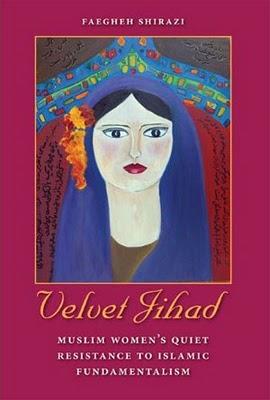Velvet Jihad: Muslim Women’s Quiet Resistance to Islamic Fundamentalism

Central to Islamic scripturalist assertion, or "Islamic fundamentalism" as it is often referred to, is the notion of the ideal Muslim woman, whose status, roles and functions are defined by rules and norms deriving from a narrow, restrictive and patriarchal reading of the Islamic scripturalist tradition. The ‘ideal’ Muslim woman in Islamic ‘fundamentalist’ discourse is defined as being submissive to male authority, while being modest and virtuous in a patriarchally-defined sense. She is to be carefully controlled and monitored, at all times, by patriarchal authority. The spread of Islamic ‘fundamentalism’ throughout Muslim communities has had seriously negative consequences for Muslim women’s rights and status. Not surprisingly, groups of Muslim women across the world have begun mobilizing against Islamic ‘fundamentalism’, some on a secular basis, using secular human rights arguments, others, working within a broadly-defined Islamic tradition, employing Islamic arguments for achieving gender equality and challenging patriarchy and misogyny in the name of Islam.
Velvet Jihad provides a fascinating general picture of the status and conditions of women in Muslim communities around the world faced with the challenge of Islamic scripturalist assertion. Shirazi admits that patriarchy is, of course, not a Muslim-specific phenomenon, but argues that the forms that it takes in Muslim communities and Muslim-majority countries makes it particularly problematic and difficult to oppose in that it is generally sought to be legitimised in the name of religion. Hence, challenging such patriarchy is a particularly arduous task as it is easily branded as a challenge to religion itself. The book catalogues a long list of hurdles and restrictions that millions of Muslim women across the world are subjected to in the name of Islam.
With abysmal levels of education, and being economically heavily dependent on their men folk, it is not surprising that vast numbers Muslim women simply have no choice but to accept their lot. Many, as Shirazi tells us, even accept this as mandated by Islam itself. Yet, Shirazi tells us there is what she colourfully calls a "velvet jihad" astir in across numerous Muslim communities spearheaded by bold Muslim women who are now vocally and stridently challenging all forms of oppression in the name of Islam. She likens it to the "velvet revolution," a peaceful movement of resistance that brought down communist dictatorships in eastern Europe in the late 1980s.
What, then, are the means that assertive Muslim women (and there are many, as Shirazi documents) are today adopting to fight patriarchy and misogyny in the name of Islam? They fall into two broad categories. Some Muslim women, who may be defined as "Muslim feminists," are seeking to oppose patriarchal laws, rules, and practices using modern human rights arguments, such as secularism, freedom, justice, and democracy, linking up with reformers, both men and women, both within their communities and countries and at the international level, to highlight the oppression of women in the name of Islam. Shirazi describes numerous such Muslim women’s groups across the world which are using this approach, with varying degrees of success. This strategy might not, however, have much resonance with religious-minded Muslims, who could easily be made to be believe that such arguments for women’s rights are not just "un-Islamic," but, rather, represent, as it is often put, an "anti-Islamic, Western conspiracy." Indeed, that precisely is what Islamic conservatives and radicals never tire of arguing.
A more culturally-rooted, and, therefore, for many practising Muslims, perhaps a more acceptable way of shaping demands for gender equality and of critiquing misogyny and patriarchy in the name of Islam, Shirazi points out, is represented by the phenomenon often labeled as "Islamic feminism." Not all the women (and men) who are engaged in articulating an Islamic feminist discourse and politics might, however, identify with that label, given the political and ideological baggage associated with the term feminism. Be that as it may, Islamic feminism, Shirazi shows by drawing on empirical evidence from extensive fieldwork in Africa, Asia, Europe, and America as well as a massive corpus of literature available on the Internet, is today a growing challenge to the authoritarian, deeply-patriarchal versions of Islam zealously upheld both Islamic conservatives and ‘fundamentalists’, who, despite their differences, are almost unanimous on the "women’s question."
Citing the works—both literary as well as practical—of a vast number of Muslim women scholars and activists as they seek to counter patriarchy in the name of Islam, Shirazi concludes that their valiant efforts, derided and fiercely opposed by powerful patriarchal forces, truly herald the arrival of a velvet jihad, one that can play a key role in not just championing Muslim women’s rights but also in fashioning more compassionate and just understandings of Islam while critiquing and standing up to violent, authoritarian, patriarchal mullahs and Islamists who claim to represent Islamic authenticity. That, in short, is what this inspiring book is all about.
A longer, more in-depth version of this review can be found at CounterCurrents